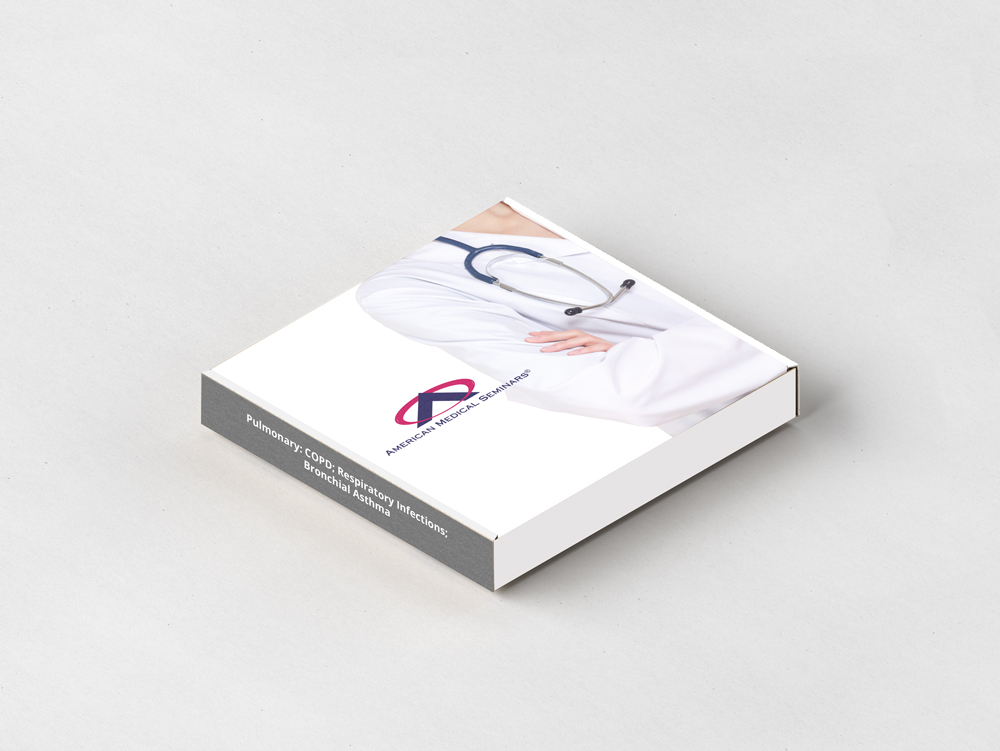Product Description
Title: Family Medicine – Pulmonary: COPD; Respiratory Infections; Bronchial Asthma
Faculty: Ganesan Murali, M.D., Michael A. Malone, M.D., Arshad A. Wani, M.D.
Original Release Date: July 1, 2019 Expiration Date: July 1, 2022
TOPIC 1: COPD – Overview of Patient Management.
- Upon the completion of this session, the participant should be able to: GL, COMP
- Appraise the definition and integrate the pathophysiology of COPD.
- Assess the clinical management of various issues regarding COPD.
- Treat acute exacerbations and outpatient management including long-term oxygen and pharmacologic treatment based on ATS/ACCP Guidelines.
- Evaluate the need of referral for surgical and newer treatments for emphysema.
TOPIC 2: Evaluation and Treatment of Respiratory Infections Commonly Seen in Primary Care.
Upon completion of this session, the participant should be able to: EBM, COMP
- Formulate appropriate evaluation strategies for patients who present with respiratory conditions.
- Identify history and exam findings that help differentiate common respiratory conditions.
- Determine situations when antibiotics are appropriate for the treatment sinus infections.
- Utilize severity index tools in the evaluation of pneumonia.
- Utilize EBM to determine appropriate treatment for common respiratory conditions.
- Discuss some of the controversies in the treatment of common respiratory infections seen in primary care.
TOPIC 3: Bronchial Asthma: An Update.
Upon the completion of this session using the NAEPP Guidelines, the participant should be able to: GL, COMP
- Appraise the pathophysiology of this inflammatory disease.
- Develop a stepwise approach to treatment of asthma and management of status asthmaticus.
- Differentiate the patient who is not responding and specify indications for subspecialty referral.
- The receipt for any incentive-associated purchase will designate the value of the gift card separately from the cost of the learning activity.
- This incentive may have implications on your tax reporting obligations. Any reimbursed amount must be declared as personal income for tax purposes.


